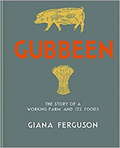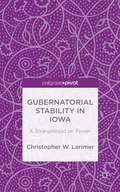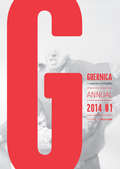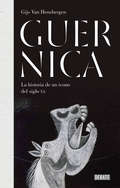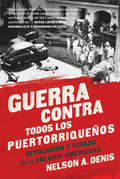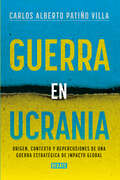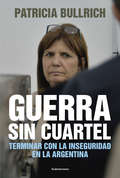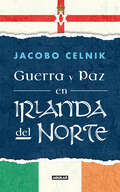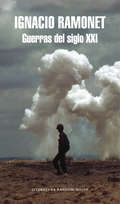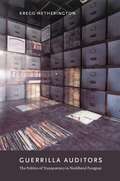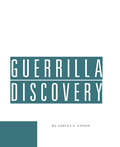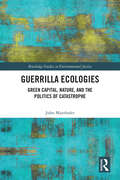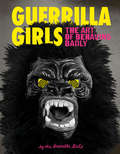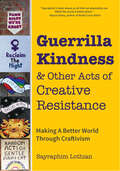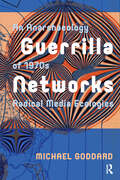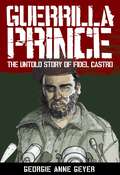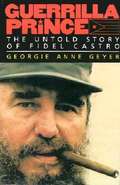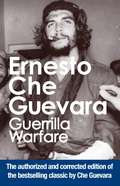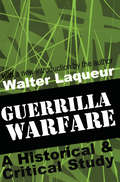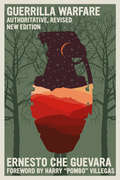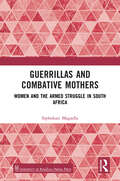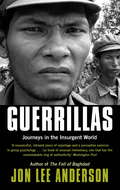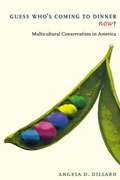- Table View
- List View
Gubbeen
by Giana FergusonGubbeen is a 250-acre, traditional farm on the most south-westerly tip of Ireland and is renowned for its award-winning cheese (called Gubbeen) and its smoked meats. The Ferguson family produces more than 50 types of food from the farm and nothing is wasted so that the circle of life sustains the family whilst creating the highest quality products for speciality shops around the world. Gubbeen: The story of a working farm and its foods is an exceptional insight into the running of this traditional farm, and encompasses the four voices of the family who runs it Giana, Tom, Fingal and Clovisse and what they do. Tom has worked the land all his life, following the old farming ways of his forbearers; Giana controls the dairy as well as keeping a keen eye on the poultry; their son Fingal uses the pigs to make bacon and smoked goods from the Smokehouse (and has a side-line in creating beautiful knives for famous chefs); and their daughter Clovisse grows chemical-free vegetables, fruit, herbs and flowers in the Kitchen Garden. Recipes are included in every section to illustrate and celebrate the farm produce, resulting in a truly inspirational read. Try Spring Lamb, Butter Beans and Dulse from the Gubbeen kitchen, or prepare the sumptuous Roast Crown of Goose, inspired by the farmyard. Gubbeen is undoubtedly most renowned for its dairy and you can have a go at creating your own Home-made Farm Cheese, or using it in recipes such as Mattie s Cauliflower and Gubbeen Ravioli or try the gorgeously gooey Gubbeen Meltdown, Gubbeen cheese baked with garlic, rosemary and thyme and served with toasted sourdough.
Gubbeen: The Story Of A Working Farm And Its Foods
by Giana FergusonGubbeen is a 250-acre, traditional farm on the most south-westerly tip of Ireland and is renowned for its award-winning cheese (called Gubbeen) and its smoked meats. The Ferguson family produces more than 50 types of food from the farm and nothing is wasted so that the circle of life sustains the family whilst creating the highest quality products for speciality shops around the world. Gubbeen: The story of a working farm and its foods is an exceptional insight into the running of this traditional farm, and encompasses the four voices of the family who runs it Giana, Tom, Fingal and Clovisse and what they do. Tom has worked the land all his life, following the old farming ways of his forbearers; Giana controls the dairy as well as keeping a keen eye on the poultry; their son Fingal uses the pigs to make bacon and smoked goods from the Smokehouse (and has a side-line in creating beautiful knives for famous chefs); and their daughter Clovisse grows chemical-free vegetables, fruit, herbs and flowers in the Kitchen Garden. Recipes are included in every section to illustrate and celebrate the farm produce, resulting in a truly inspirational read. Try Spring Lamb, Butter Beans and Dulse from the Gubbeen kitchen, or prepare the sumptuous Roast Crown of Goose, inspired by the farmyard. Gubbeen is undoubtedly most renowned for its dairy and you can have a go at creating your own Home-made Farm Cheese, or using it in recipes such as Mattie s Cauliflower and Gubbeen Ravioli or try the gorgeously gooey Gubbeen Meltdown, Gubbeen cheese baked with garlic, rosemary and thyme and served with toasted sourdough.
Gubernatorial Stability in Iowa: A Stranglehold On Power
by Christopher LarimerThis book uses a multi-method approach to explain why recent Iowa governors have been able to stay in office significantly longer than their peers. Voters in Iowa value a personal connection with their governor and those governors who ignore that expectation are held accountable at the polls.
Guernica
by Nick FlynnIncluded are conversations with Nicole Aragi, Lesley Hazleton, and George Packer, and features and poetry from Tomaž Šalamun, Kiese Laymon, Ann Neumann, J. Malcolm Garcia, Rebecca Gayle Howell, Cecilia Rodríguez Milanés, and many more of Guernica's esteemed contributors.
Guernica: La historia de un icono del siglo XX
by Gijs Van HensbergenNueva edición actualizada de la apasionante historia del mítico cuadro Guernica de Pablo Picasso, convertido en un icono del siglo XX gracias a su fuerza simbólica y a su contenido antibelicista. La historia es conocida. El 26 de abril de 1937, docenas de aviones alemanes de la Legión Cóndor bombardearon durante tres horas la ciudad de Gernika destruyéndola y causando centenares de muertos. Este trágico suceso inspiró a Pablo Picasso, uno de los artistas más comprometidos de su tiempo, en acometer la tarea de pintar un cuadro que llegaría a ser síntesis del horror y de la violencia de la cultura occidental moderna y referencia del mundo progresista durante décadas. Guernica se convirtió con el paso del tiempo en uno de los cuadros más famosos de la historia de la pintura, un lienzo profundamente español y universal que durante las largas décadas franquistas se exhibió en Nueva York y que tras la llegada de la democracia, y por expreso deseo del pintor, se puede contemplar en Madrid desde octubre de 1981. Este libro -que incluye un extenso prólogo que actualiza y profundiza sobre el análisis del cuadro ahora que se conmemora el treinta aniversario de su llegada a España- es un apasionante recorrido por la gestación de una obra de arte. Escrito en un estilo accesible, Gijs van Hensbergen recrea el clima y las dificultades del proceso creativo, a la vez que describe con precisión las diferentes etapas y su definitiva composición hasta conseguir una auténtica «biografía de un icono del siglo XX». Paul Preston ha dicho...«Esta historia de un cuadro -cómo se pintó, su significado y su destino final- es un logro extraordinario y aporta una visión sorprendentemente original. El autor recrea con pasión y elegancia la historia de Picasso y su denuncia de la guerra a través de la vida del artista, del exilio republicano, de la España de Franco, del París en guerra y de la Nueva York burguesa para iluminar la travesía de esta obra desde el mismo bombardeo de Gernika hasta su llegada a Madrid en 1981.»
Guerra Contra Todos Los Puertorriqueños: Revolución Y Terror En La Colonia Americana
by Nelson A. Denis"Prepárese para ser enfurecido. Una lectura obligada y reveladora. " --Robert Domínguez, New York Daily News En 1950, después de cincuenta años de ocupación militar y gobierno colonial, el Partido Nacionalista de Puerto Rico montó una fallida revolución armada contra Estados Unidos. La violencia arraso con la isla: comandos nacionalistas fueron enviados a Washington a ajusticiar al presidente Harry Truman, se desataron tiroteos en ocho municipios, se incendiaron cuarteles policiacos y oficinas de correo. Para sofocar esta insurrección, el Ejército de Estados Unidos desplegó miles de tropas y ametralló dos pueblos desde el aire, marcando la primera vez en su historia que el gobierno estadounidense atacó de esta forma a sus propios ciudadanos. Por medio de narraciones orales, entrevistas personales, relatos de testigos oculares, testimonios del Congreso de Estados Unidos y archivos recientemente liberados al público por el FBI, Guerra Contra Todos los Puertorriqueños nos relata la historia de una revolución olvidada y su contexto en la historia grande de Puerto Rico, desde la invasión estadounidense de 1898 hasta la lucha actual por la plena autodeterminación de los puertorriqueños.
Guerra da Independência Indiana de 1857 / A Revolta dos Cipaios de 1857: O Curso e as Consequências da Guerra da Independência Indiana de 1857
by Shahid Hussain RajaExplica os antecedentes da Guerra da Independência Indiana de 1857 ou o que uma seção de escritores chama de Motim do Sepoy Indiano de 1857, enumera em detalhes as causas sociais, econômicas e políticas desse momento importante, narra o curso dos eventos, as razões de seu fracasso e termina com uma análise detalhada sobre seu impacto a longo prazo e a curto prazo. Analisa que muitas das tendências atuais da Índia, Paquistão e Bangladesh têm suas raízes nas políticas adotadas pelos administradores britânicos após esse levante.
Guerra en Ucrania
by Carlos Alberto PatiñoOrigen, contexto y repercusiones de este conflicto A inicios del año 2022, la guerra contra Ucrania tomó por sorpresa al mundo. Sin embargo, más que un hecho aislado, es parte de una estrategia por parte de Rusia que viene de tiempo atrás, en un intento por recuperar la posición geopolítica que ostentaba hasta hace unas cuantas décadas. Guerra en Ucrania es un libro que permitirá comprender las razones por las cuales se desató una guerra y una invasión contra el país de Europa del Este. Los lectores contarán con la información necesaria para conocer el contexto histórico de estos eventos, apoyados con mapas y gráficos. Se presentarán las guerras y acciones militares rusas que se han llevado a cabo desde 1992, la situación de Ucrania, Crimea y el Dombás en 2014, así como las posiciones de los Estados Unidos, la OTAN y la Unión Europea, y las posibles consecuencias internacionales de esta guerra en el orden mundial
Guerra sin cuartel: Terminar con la inseguridad en la Argentina
by Patricia BullrichPatricia Bullrich, ministra de Seguridad del gobierno de Mauricio Macri, cuenta en primera persona los desafíos más importantes que enfrentó en su gestión y brinda su visión sobre la seguridad en la Argentina al tiempo que defiende a la ley y el orden, y a los encargados de hacerla cumplir y mantenerlo, como reaseguros de la democracia. El 10 de diciembre de 2015 Patricia Bullrich, por entonces reconocida por sus posiciones firmes contra la delincuencia, se hizo cargo del Ministerio de Seguridad de la Nación por pedido del presidente electo Mauricio Macri. Ya en funciones, su lucha frontal contra el crimen organizado y su tenaz defensa del papel institucional de las fuerzas de seguridad federales, le valieron el reconocimiento de amplios sectores de la población y, al mismo tiempo, el embate de núcleos radicalizados de organizaciones de derechos humanos y de sectores de opinión autodenominados garantistas. En este libro, Bullrich presenta por primera vez al gran público los desafíos que tuvo que enfrentar en su gestión, y lo hace desde dos perspectivas aunadas: una, estratégica, asociada a la ejecución de política pública propia de su función; la otra, más personal y humana, expresada en infinidad de anécdotas cotidianas. En ese doble registro, estas páginas se ocupan de problemas que van del narcotráfico y el terrorismo a casos como el de la muerte de Santiago Maldonado y la seguridad de la Cumbre del G-20, pasando por las fronteras "calientes" de nuestro país, la presencia policial en las calles y el protocolo de uso de armas por parte de las fuerzas de seguridad. Testimonio indispensable en tiempos en que millones de argentinos claman por seguridad, Guerra sin cuartel es también una defensa valiente y apasionada del valor de la ley y el orden en democracia. «Como ministra de Seguridad de la República Argentina he debido librar una guerra contra el crimen organizado y sus cómplices en la política y en ciertas organizaciones de la sociedad civil; 'sin cuartel' porque no tuve un solo día de tregua y también porque los ataques provenían de los más diversos ángulos, sin una trinchera visible. A pesar de todo, estoy convencida de haber contribuido a devolver el respeto a la ley y a quienes están a cargo de hacerla cumplir en la Argentina».Patricia Bullrich
Guerra y Paz en Irlanda del Norte
by Jacobo CelnikEn 2023 se cumplen 25 años del Proceso de Paz de Irlanda del Norte. Un libro que rememora una época oscura en las voces de quienes lo vivieron El 22 de mayo de 1998, los irlandeses del Norte, sin importar su religión, le dijeron sí a la paz. Ese 71,2?% que refrendó el Acuerdo de Viernes Santo le dio la oportunidad a la provincia del Úlster de dejar atrás treinta años de violencia sectaria para encarar un futuro esperanzador. Perfecta o imperfecta, la paz en Irlanda del Norte ha sido estable, inspiradora y ejemplo para muchas sociedades inmersas en conflictos sociales, políticos, religiosos y territoriales. Guerra y Paz en Irlanda del Norte es una investigación que reconstruye gran parte de la historia de dicho territorio -desde los tiempos de la Conquista británica, pasando por los intentos de independencia delpoder colonial a inicios del siglo XX y por el surgimiento de fuerzas paramilitares que lucharon férreamente por sus intereses, hasta la partición que dio origen a dos países: Irlanda del Norte y la República de Irlanda-, con énfasis en la violencia sectaria de finales de los años sesenta y el proceso de paz. El autor sustenta su investigación con testimonios exclusivos de diversos actores del conflicto norirlandés, como exmiembros del IRA, de los Ulster Volunteer Force (UVF) y del Ejército Británico, además de políticos, periodistas, diplomáticos, académicos, artistas y ciudadanos del común, quienes ofrecen su visión y sus recuerdos de una historia que no tiene una única verdad.
Guerras del siglo XXI: El imperio contra Irak
by Ignacio RamonetUn valiente análisis de las amenazas y miedos que provienen de la mundialización y del desequilibrio entre las naciones tras el 11 de septiembre de 2001. Ignacio Ramonet presenta un retrato del nuevo mundo tras los atentados del 11 de septiembre: la ofensiva de Estados Unidos contra el terrorismo internacional, el recrudecimiento del conflicto israelí-palestino y el ascenso de la ultraderecha en el paisaje electoral europeo. Este nuevo orden viene condicionado por otro fenómeno central, la globalización, cuyos protagonistas no son estados colonizadores, sino empresas y multinacionales privadas dispuestas a dominar el planeta invadiendo mercados en lugar de países. Lo que se traduce en un agravamiento de las desigualdades y en la reiterada destrucción de la naturaleza. Ante esta situación, los ciudadanos reclaman nuevos derechos colectivos que defiendan un medio ambiente a salvo de la contaminación, una ciudad humana, una información no manipulada, así como la paz y el desarrollo de los pueblos. Las sociedades civiles deben reclamar su protagonismo en las grandes negociaciones internacionales. Para cambiar este mundo, hay que soñar un futuro diferente. Reseña:«Junto a la gran cantidad de información que proporciona esta obra en su análisis de la realidad más actual, Ramonet crea, como en las utopías, horizontes inesperados.»Bernabé Sarabia, El Cultural de El Mundo
Guerrilla Auditors: The Politics of Transparency in Neoliberal Paraguay
by Kregg HetheringtonGuerrilla Auditors is an ethnographic account of the rise of information, transparency, and good governance in the post-Cold War era, and the effects of these concepts on Paraguay's transition to democracy. Kregg Hetherington shows that the ideal of transparent information, meant to depoliticize bureaucratic procedures, has become a battleground for a new kind of politics centered on legal interpretation and the manipulation of official documents. In late-twentieth-century Paraguay, peasant land politics moved unexpectedly from the roads and fields into the documentary recesses of state bureaucracy. When peasants, bureaucrats, and development experts encountered one another in state archives, conflicts ensued about how bureaucracy ought to function, what documents are for, and who gets to narrate the past and the future of the nation. Hetherington argues that Paraguay's neoliberal democracy is predicated, at least in part, on an exclusionary distinction between model citizens and peasants. Despite this, peasant activists have found ways to circumvent their exclusion and in so doing question the conceptual foundations of international development orthodoxy.
Guerrilla Discovery
by Ashley LipsonGuerrilla Discovery Most litigation and settlement outcomes are determined in quarrelsome discovery fights. Coercion and confrontation are usually necessary to obtain evidence on the hotly-contested issues. To help you win more of these important discovery skirmishes, Ashley Lipson's Guerrilla Discovery offers dozens of clever strategies, novel arguments, direct answers, cautionary instructions, helpful timelines, tactically-annotated rules, and innovative forms that will help you handle even the most defiant deponents. In addition, Guerrilla Discovery: * Offers answers and solid principles on how to propose and oppose virtually every form of evidence. * Provides instant access to cases, statutes and checklists that will help you lay solid foundations, make accurate objections, and effectively examine. * Divides the universe of evidence into four categories -- testimonial, documentary, real and demonstrative -- providing extreme detail in a concise, organized manner.
Guerrilla Ecologies: Green Capital, Nature, and the Politics of Catastrophe (Routledge Studies in Environmental Justice)
by John MaerhoferThis book intervenes in contemporary debates about climate activism, militancy, and strategy that have been gathering force in radical ecological circles. It responds to some of the urgent questions about utilizing militancy as part of the overall effort to foster an ecosocialist society. Building upon the crucial work of scholars and activists from the 1970s to the present, such as Carolyn Merchant, Ursula Heise, Raj Patel, Joan Martinez Alier, Neil Smith, and Mark Dowie, this book discusses and regenerates key principles of guerrilla ecology. It presents a significant critique of green capital and its impact on the shape of environmental and climate justice movements. From car manufacturers dedicating profits to reforestation, to big oil conglomerates funneling money into universities that are developing techno-fixes which may stave off ecological disaster, green capital has become the mainstay of contemporary cultural, political, and economic reproduction – aiming to fuse profitability and sustainability. The book brings together discussion on key topics in a range of contexts including biopiracy and biocolonialism, indigenous resistance, extractivism, anti-imperialism, ecotage, and eco-militancy. It will attract scholarly readers from diverse spaces in the environmental humanities, environmental and climate justice, radical ecology, and philosophy.
Guerrilla Girls: The Art of Behaving Badly
by Guerrilla GirlsGuerrilla Girls: The Art of Behaving Badly is the first book to catalog the entire career of the Guerrilla Girls from 1985 to present.The Guerrilla girls are a collective of political feminist artists who expose discrimination and corruption in art, film, politics, and pop culture all around the world.This book explores all their provocative street campaigns, unforgettable media appearances, and large-scale exhibitions.• Captions by the Guerrilla Girls themselves contextualize the visuals.• Explores their well-researched, intersectional takedown of the patriarchyIn 1985, a group of masked feminist avengers—known as the Guerrilla Girls—papered downtown Manhattan with posters calling out the Museum of Modern Art for its lack of representation of female artists.They quickly became a global phenomenon, and the fearless activists have produced hundreds of posters, stickers, and billboards ever since.• More than a monograph, this book is a call to arms.• This career-spanning volume is published to coincide with their 35th anniversary.• Perfect for artists, art lovers, feminists, fans of the Guerrilla Girls, students, and activists• You'll love this book if you love books like Wall and Piece by Banksy, Why We March: Signs of Protest and Hope by Artisan, and Graffiti Women: Street Art from Five Continents by Nicholas Ganz
Guerrilla Kindness & Other Acts of Creative Resistance: Making A Better World Through Craftivism
by Sayraphim Lothian# 1 Best Seller in Crafts & Hobbies, Stenciling - Resistance CraftsCraftivism can be your voice of resistance: Craftivism is a non-threatening form of activism that gives people a voice when they feel voiceless and power where they feel powerless. It is an international movement for our time and noted Craftivism expert Sayraphim Lothian has put together the first-ever tutorial book on craftivism.In Guerilla Kindness: artist, scholar, activist, and YouTube art teacher Sayraphim Lothian gives you an introduction to the art of craftivism, and provides a brief history of creative resistance. This master craftivist shows you how to make and use various crafts for political and protest purposes including:EmbroideryCross stitchKnittingStencilingDecoupageStampingand much moreJoin us in the Craftivism movement: Craftivism is a growing worldwide movement in which hand crafted works are being used to highlight political issues, creatively engage in activism, and encourage change in the world. Craftivists employ their works to open a space for people to be introduced to issues and to broaden the discussion surrounding them. While it might seem that this most colorful movement began recently, creative resistance has been with us for centuries around the globe, and craftivism and makers stating their mind through the medium of art is here to stay.
Guerrilla Networks: An Anarchaeology of 1970s Radical Media Ecologies (Recursions)
by Michael GoddardThe radical youth movements of the 1960s and '70s gave rise to both militant political groups ranging from urban guerrilla groups to autonomist counterculture, as well as radical media, including radio, music, film, video, and television. This book is concerned with both of those tendencies considered as bifurcations of radical media ecologies in the 1970s. While some of the forms of media creativity and invention mapped here, such as militant film and video, pirate radio and guerrilla television, fit within conventional definitions of media, others, such as urban guerrilla groups and autonomous movements, do not. Nevertheless what was at stake in all these ventures was the use of available means of expression in order to produce transformative effects, and they were all in different ways responding to ideas and practices of guerrilla struggle and specifically of guerrilla media. This book examines these radical media ecologies as guerrilla networks, emphasising the proximity and inseparability of radical media and political practices.
Guerrilla Prince: The Untold Story Of Fi
by Georgie GeyerBased on hundreds of interviews conducted over many years in 28 countries, including extensive personal interviews with Castro himself, Georgie Anne Geyer reveals the untold story of Fidel Castro in this definitive biography.
Guerrilla Prince: the Untold Story of Fidel Castro
by Georgie Anne GeyerA flashy, gossipy journalistic biography for those as interested in Castro's paramours as his policies.
Guerrilla Warfare
by Ernesto Che Guevara Harry Pombo" VillegasFeaturing a new preface by his guerrilla compañero in Bolivia and Africa, Harry "Pombo" Villegas, this new, expanded and revised edition of a bestselling Che Guevara classic reviews a crucial period of Latin American political history.
Guerrilla Warfare: A Historical and Critical Study
by Walter LaqueurAs the author makes clear, every book has a history; Guerrilla Warfare is no exception. Together with its sequel Terrorism (and two companion readers) it was part of a wider study: to give a critical interpretation of guerrilla and terrorism theory and practice throughout history. It did not aim at providing a general theory of political violence, nor did it give instructions on how to conduct guerrilla warfare and terrorist operations. Its aim remains to bring about greater semantic and analytic clarity, and to do so at psychological as well as political levels.While the word guerrilla has been very popular, much less attention has been given to guerrilla warfare than to terrorism - even though the former has been politically more successful. The reasons for the lack of detailed attention are obvious: guerrilla operations take place far from big cities, in the countryside, in remote regions of a nation. In such areas there are no film cameras or recorders.In his probing new introduction, Laqueur points out that a review of strategies and the fate of guerrilla movements during the last two decades show certain common features. Both mainly concerned nationalists fighting for independence either against foreign occupants or against other ethnic groups within their own country. But despite the many attempts, only in two placesAfghanistan and Chechnya were the guerrillas successful.According to Laqueur historical experience demonstrates that guerrilla movements have prevailed over incumbents only in specific conditions. Due to a constellation of factors, ranging from modern means of observation to increase in firepower. The author suggests that we may witness a combination of political warfare, propaganda, guerrilla operations and terrorism. In such cases, this could be a potent strategy for unsponsored revolutionary change. But either as social history or military strategy this work remains a crucial work of our times.
Guerrilla Warfare: Authoritative, Revised, New Edition (The Che Guevara Library)
by Ernesto Che GuevaraChe Guevara&’s classic text on revolutionary tactics and strategy.Since Guerrilla Warfare was first published in 1961, it has joined the canon of classic military literature, consulted by revolutionaries and counterrevolutionaries alike. In this book, Che Guevara outlines the lessons he learned as a guerrilla soldier in the Cuban revolution and explains how a small group of dedicated fighters grew in strength with the support of the Cuban people, overcoming the odds to vanquish the US-backed dictator&’s army and overthrow the dictatorship. Guerrilla Warfare is both an insightful account of one of the decisive revolutionary movements of the twentieth century and a timeless resource for freedom fighters the world over. This edition includes Che&’s corrections and his suggestions for further revisions to the text—revisions his murder in 1967 prevented him from making.
Guerrillas and Combative Mothers: Women and the Armed Struggle in South Africa
by Siphokazi MagadlaGuerrillas and Combative Mothers is a narrative of women participating in the armed struggle against apartheid from 1961 to 1994 and their lives in a democratic South Africa. Focusing on their agency, commitment, beliefs and actions, it describes how women got politicised and the decisions and circumstances that led them to join the armed struggle in South Africa and exile. Siphokazi Magadla discusses the forms of military training they received, the combat activities and their transformation as women and soldiers. Magadla also talks about their participation in the South African National Defence Force-led demobilisation process and their contributions to the democratic revolution of the SANDF. By illuminating the different eras and arenas of their participation, this book shows the broadness of the armed struggle against apartheid as a historical truth and as a matter of gender equality and justice for an inclusive and more democratic future.
Guerrillas: Journeys in the Insurgent World
by Jon Lee AndersonPrior to gaining international renown for his definitive biography of Che Guevara and his firsthand reports on the war in Iraq in the acclaimed THE FALL OF BAGHDAD, Jon Lee Anderson wrote GUERRILLAS, a daring on-the-ground account of five diverse insurgent movements around the world: the mujahedin of Afghanistan, the FMLN of El Salvador, the Karen of Burma, the Polisario of Western Sahara, and a group of young Palestines fighting against Israel in the Gaza Strip. Making the most of unprecedented, direct access to his subjects, Anderson combines powerful storytelling with a balanced, penetrating analysis of each situation. A work of phenomenal range, analytical acuity, and human empathy, GUERRILLAS amply demonstrates why Jon Lee Anderson is one of our most important chroniclers of societies in crisis.
